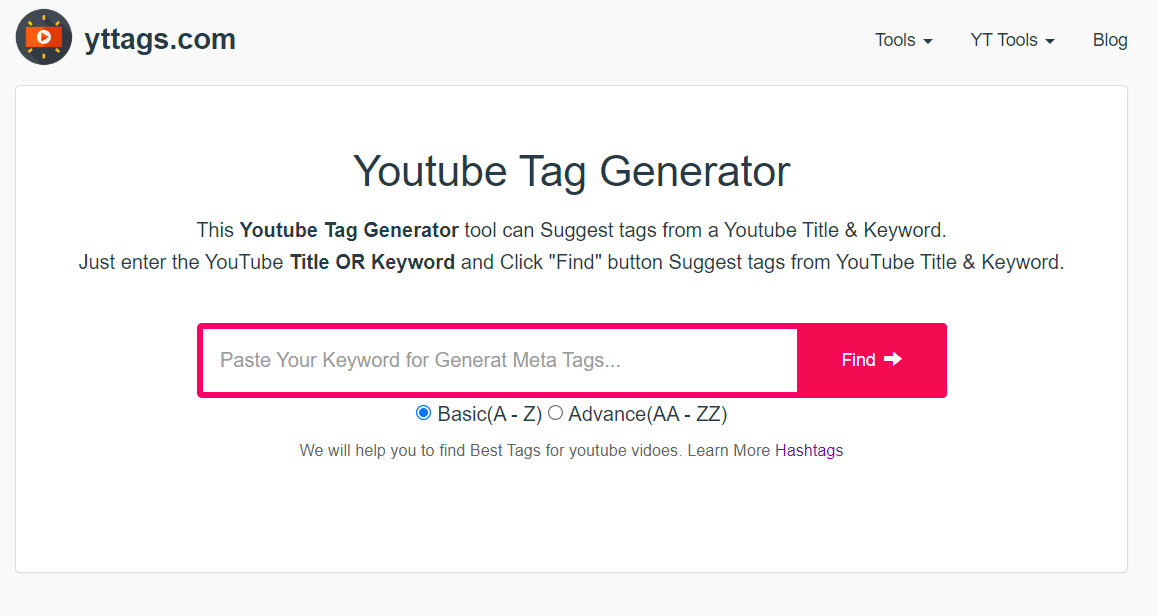With this tool you can find out list of generators for any search-term from Youtube search autocomplete feature.
Youtube Keyword Suggestion Script
Certainly! Here’s a basic example of a PHP script that utilizes the Google YouTube API to retrieve keyword generators for a given search query:
Features:
- Developed in PHP which is already installed on most servers
- Easy to install
- Files may include: PHP, HTML, JS, CSS
- License: Use this item on single or multiple domains that you own
- Modification or Customization are allowed
- Most of the scripts does not require MySQL or other database system
- Product Delivery: Via Email
- Requirements: PHP installed on any web-server or platform
Web-Based - With full source code, without any encryption
- Support Email: php.king25@gmail.com
Price: $10 USD Only
We accept PayPal, UPI, Bank Transfers, GPAY/Phone Pay, etc
Live Demo
Youtube Keyword Suggestion Tool
A YouTube keyword suggestion tool is designed to help you discover relevant keywords and topics that are commonly searched for on YouTube. These tools utilize various techniques, such as data mining, natural language processing, and machine learning, to analyze large amounts of YouTube data and provide keyword suggestions based on user input.
Here’s a general overview of how a YouTube keyword suggestion tool typically works:
Data Collection: The tool collects a significant amount of data from YouTube, including video titles, descriptions, tags, and user queries. This data serves as the basis for generating keyword suggestions.
Preprocessing: The collected data is preprocessed to clean and transform it into a suitable format for analysis. This step may involve removing punctuation, converting text to lowercase, and removing stop words (common words like “and,” “the,” etc. that don’t contribute much to the meaning).
Keyword Extraction: The tool identifies important keywords from the collected data. This can be done using techniques like frequency analysis, where the tool counts the occurrence of each word or phrase and identifies the most commonly used ones.
Keyword Expansion: Once the initial set of keywords is obtained, the tool expands the list by generating related keywords. This can involve techniques like word embeddings, where the tool analyzes the semantic relationships between words and suggests similar or related keywords.
Query Analysis: When a user enters a search query, the tool analyzes the query to understand its context and intent. This analysis can involve techniques like part-of-speech tagging, named entity recognition, or sentiment analysis to gain a deeper understanding of the user’s query.
Suggestion Generation: Based on the user’s query and the collected data, the tool generates a list of keyword suggestions that are relevant to the query. These suggestions can include related keywords, long-tail keywords, or popular search terms that match the user’s query.
Presentation: The keyword suggestions are typically presented to the user in a user-friendly format, such as a list or a tag cloud, where the most relevant and popular keywords are displayed prominently.
It’s important to note that the specific implementation of a YouTube keyword suggestion tool may vary depending on the underlying algorithms, techniques, and data sources used. Different tools may also incorporate additional features, such as search volume metrics, competition analysis, or historical trend data, to provide more comprehensive keyword suggestions.
















